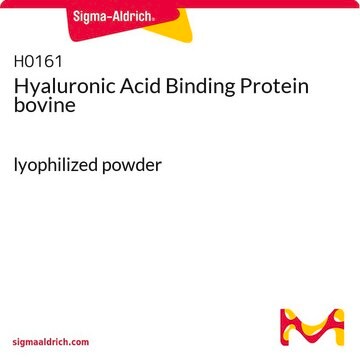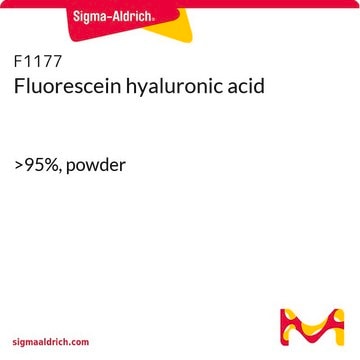924474
Hyaluronic Acid
Low Viscosity, Low endotoxin
Sinónimos:
3D bioprinting, HA, Hyaluronan
About This Item
Productos recomendados
Quality Level
form
(powder or chunk(s) or fibers)
impurities
<10 CFU/g Bioburden
<100 EU/g Endotoxin
color
white to off-white
suitability
conforms to structure for NMR
storage temp.
2-8°C
Categorías relacionadas
General description
Application
- Cell migration
- Angiogenesis
- Viability
- Proliferation
Our low endotoxin HA is tested for both endotoxin (< 100 EU/g) and bioburden (< 10 CFU/g) levels, so you can choose which material is right for your research.
Storage Class
11 - Combustible Solids
wgk_germany
WGK 3
flash_point_f
Not applicable
flash_point_c
Not applicable
Certificados de análisis (COA)
Busque Certificados de análisis (COA) introduciendo el número de lote del producto. Los números de lote se encuentran en la etiqueta del producto después de las palabras «Lot» o «Batch»
¿Ya tiene este producto?
Encuentre la documentación para los productos que ha comprado recientemente en la Biblioteca de documentos.
Artículos
Engineered ECMs enhance immune therapy in cancer treatment by supporting cells and tissues and modulating immune response. They improve immune cell maturation, expansion, and regulation through biomaterial manipulation, acting as frameworks or carriers for enhanced tumor immunotherapy.
Nuestro equipo de científicos tiene experiencia en todas las áreas de investigación: Ciencias de la vida, Ciencia de los materiales, Síntesis química, Cromatografía, Analítica y muchas otras.
Póngase en contacto con el Servicio técnico





